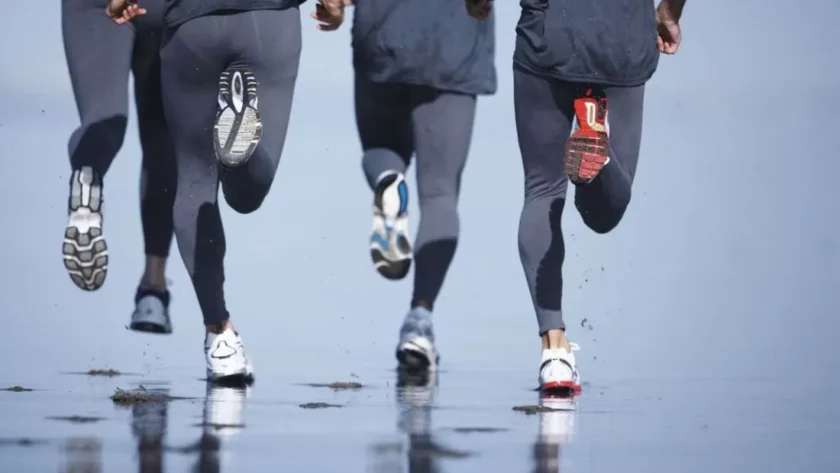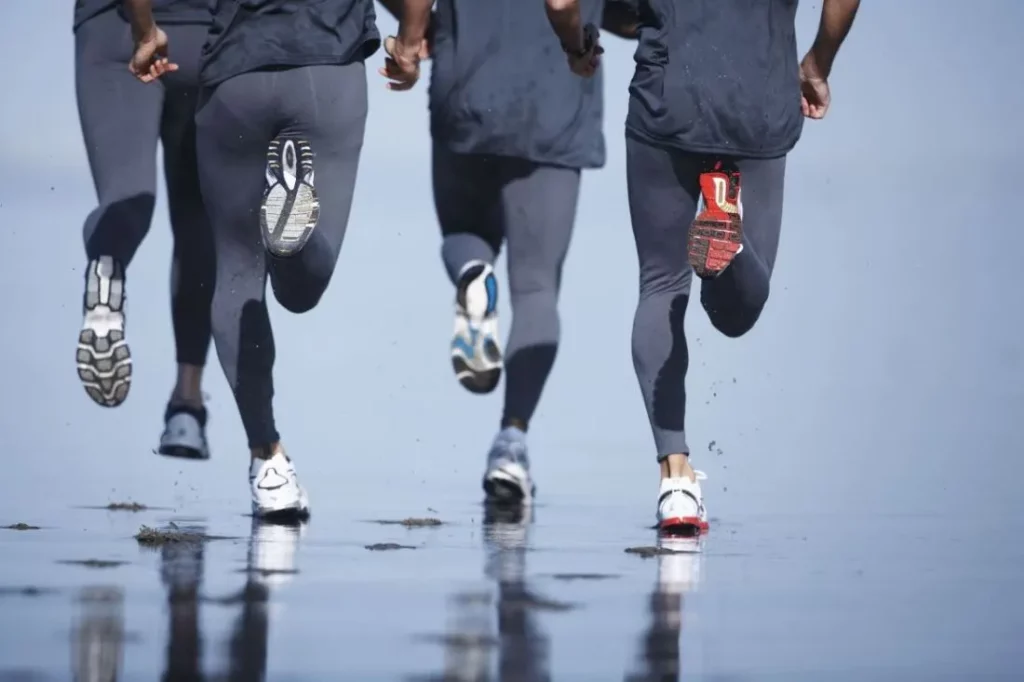OVER VIEW
Contents
Ways to maintain bone health are essential, especially for those who suffer from bone health issues, or after 30 age people, where bone density starts decreasing.
Bone protects our brain, heart, and other body organs from injury, and bone contains minerals such as calcium and phosphorous, that keep bone strong.
After 30 almost all people begin to lose bone density, and over the age of 50, Osteoarthritis is most common in adults.
So make sure, to eat enough protein, nutrition, calcium, plenty of exercise, etc which promote making bones healthy.
If you consume any bone-related supplement, or any other supplement consult the doctor first, to avoid any side effects of it.
Here are some ways that are wonderful to maintain bone health such as:
Exercises
This is one of the best ways to promote or maintain bone health.
Evidence suggests that the most helpful physical activity regimens for bone health are strength-training or resistance-training activities (1).
Completely true, that lack of exercise, can cause bone loss, and osteoporosis, which also leads to back pain, obesity, joint pain, etc.
Research that a high level of physical activity during youth, as seen in female athletes, seems to have a beneficial effect on bone and helps to prevent bone loss due to aging (2).
- Weight-bearing exercises, any activity in which your feet and legs carry your own weight like – walking, hiking, climbing, dancing, etc.
- Resistance exercises such as lifting weight, squats, lunges, etc,
Swimming and bicycling can help in building strong muscles and are also good for heart health.
Exercise is beneficial in many ways in older people such as – improving muscle mass, and mental health, muscle strength, balance, and bone strength
As a result, it may decrease the risk of fractures, by reducing the risk of falling. In older people, it offers large benefits by reducing fall risk (3).
Physical activity for adults such as:
- Walking
- Climbing
- Jogging
- Weight listing but no too much
- Stationary cycling or cycling
- Yoga
- Stretching exercises
Studies in children who have type I diabetes have shown that weight-bearing and high activity exercises can increase the amount of bone created during peak bone growth (4).
Another study showed in both old men and women who did weight-bearing exercise had increased BMD, bone strength, and bone size (5).
As well, the swelling of the bones also decreased (6) (7).
So daily 60 minutes, walking, running, other physical exercises, etc best for all group people, which prevent loss bone, and bone-related disease.
Check More – Resistance Exercise And Endurance Exercise
Consumed rich calcium foods
Bone is made up of fiber and to retain the fiber requires calcium, which acts like cement, and after age, especially in women calcium absorption is decreased.
Calcium is one of the major compounds that are very essential for keeping our bones dense, strong, or healthy.
Research says the highest amount (1,300 mg per day) should be given to children and teenagers ages 9–18, (a period where bones grow rapidly) (8).
Vegetables also contain calcium, but the amount of calcium absorbed from these sources varies, like broccoli and kale, which is well absorbed (9).
Here are rich calcium food which includes:
- Green vegetables like – broccoli, cabbage and okra, but not spinach.
- Dairy products like milk, cheese, paneer, yogurt, if you are lactose, so consume lactose free product like Swiss, and Parmesan cheese.
- Fortified cereal or orange juice
- Soy products, like soya beans, drink, etc
- Nuts
After menopause women are more prone to fracture, injury due to low bone density, so make sure to consume a rich calcium diet.
However, more calcium in the body leads to stomach upset, vomiting, constipation, headache, etc.
Excess calcium in the blood can leak out of your bones and weaken them, which can lead to bone and muscle weakness.
Walking
It is also a Weight-bearing activity that builds and maintains strong bones and is an excellent exercise.
Walking can provide more joint mobility prevent the loss of bone density and even decrease the risk of fractures.
Arthritis org recommends that walking at least daily 30 minutes can reduce pain, stiffness, muscle soreness, and inflammation in the joints (10).
A study at the University of Kansas has revealed low impact aerobic exercises like walking prevent dementia and reduce the risk of developing Alzheimer’s disease.
Check more – Can Walking Relieve Back Pain? – Research-Backed
Yoga
Yoga is also a physical activity that comes in a huge range of benefits such as – improved balance, posture, bring flexibility, and many more.
Even a small study in 2009 found that properly or consistently doing yoga can actually promote bone density or health.
Here are a few weight-bearing asanas to prevent osteoporosis such as:
- Ekpasasan (one leg pose)
- Natrajasana (dancing pose)
- Adhomukhshwanasan (downward facing dog)
Hand-pressed asana – In plank pose, lie down on your stomach and raise your upper body and take your upper body with your arms straight.
Both the toes bent inwards, stay in this position like a plank for a few minutes, and come back.
These asanas would be anti-gravity asanas which include:
- Viparita Karani (leg up the wall pose)
- Sarvangasana
- Skipping the rope (do atleast 100 round of it)
Another small 206 study showed that yoga has a positive effect on BMD in postmenopausal women with osteoporosis.
Check out – Yoga For Healthy Heart | Food To Eat And Avoid.
Take enough Vitamin D3 and K
Vitamin D is the same as important as calcium, which helps in calcium absorption, and people over 50 age need it more.
The current recommended intake of vitamin D is 250 mg. however most people need 200 IU per day.
But these recommendations are raised by age, like 400 IU per day in those aged 50–70, and 600 IU per day over the age of 70.
The best source of vitamin D, or D3 are:
Sunlight is one of the best sources of vitamin D or D3, which is made in the skin by being exposed to sunlight.
However, excessive exposure to sunlight can lead to sunburn, which enhances the risk of skin cancer such as melanoma, and changes skin color.
Dietary products are another good dietary source of vitamin D are – fatty fish such as salmon, tuna, egg yolks, mushroom, orange juice, almond milk.
Unfortunately, vitamin D deficiency affects approximately 1 billion people worldwide (11).
NOTE: Vitamin K is important for blood clots and promotes bone health, thus, preventing excessive bleeding, helping wounds to heal.
Studies on humans demonstrated that vitamin K can not only enhance bone mineral density in osteoporotic people but can also reduce fracture rates (12).
Green leafy vegetables like kale, spinach, collards, mustard greens. fish, liver, eggs, cereals, kiwi, avocado, prunes, etc are the best sources of vitamin K.
Vitamin K comes in two forms K1 and K2 (Vitamin K2, which is primarily produced by bacteria), further divided into subgroups named MK4 to MK13.
A small study in fit young women found that MK-7 supplements increased blood level of vitamin K2 more than MK-4 (13).
Take Collagen, Magnesium, and Zinc foods
Vitro studies with rodents showed that administration of collagen peptides increased bone health, also improved bone metabolism and fragility (14) (15) (16).
A study showed that in postmenopausal women was that collagen peptides significantly increased (BMD) in both the lumbar spine and femoral neck (17).
NOTE: Collagen-rich food for bone is – chicken, citrus fruit, berries, garlic, egg white, tea, beans, etc.
Magnesium is required for energy production, also supports muscle and nerve function, over time low magnesium can lead to poor bone (18).
A study conducted over 73,000 women, showed that those whose magnesium intake was 400 mg per/day had 2-3% higher bone density, compared to those who consumed half.
NOTE: Rich food such as – pumping seeds, almonds, peanuts, chocolate, banana, etc.
Magnesium intake might be an effective and low-cost preventive measure against osteoporosis in individuals (19).
Zinc is a vital mineral that is required for normal “skeletal growth and bone homeostasis“, as well as being able to promote bone regeneration (20).
Apart from this, zinc encourages the formation of bone-building cells and prevents minimizes the risk of fracture after falling.
NOTE: Zinc-rich food such as – meat, chickpeas, lentils and beans, seeds, nuts, eggs, whole grains, etc.
Maintain healthy weight
Of course, obesity affects your bone density, because being overweight put more pressure on your leg bone, which is associated with the risk of joint pain.
However, being underweight can also contribute to reduced bone density and bone loss (21) (22).
Being overweight, put more stress on bones, which creates difficulty in everyday performance, over time can lead to bone fracture, and breaking down.
Being overweight can affect our overall health such as:
- lead to heart attack
- High blood pressure
- Reduce quality of life
- More chance to type II diabetes
- Gallbladder disease
- Low sex desire
Obesity affects bone metabolism through many pathways that could be further enhanced with aging (23).
So make sure, to maintain a healthy weight, and lose excess weight with exercise, which is great for both physical and mental health.
Check Out – Obesity dozens of Effect On The Body, And Reasons





